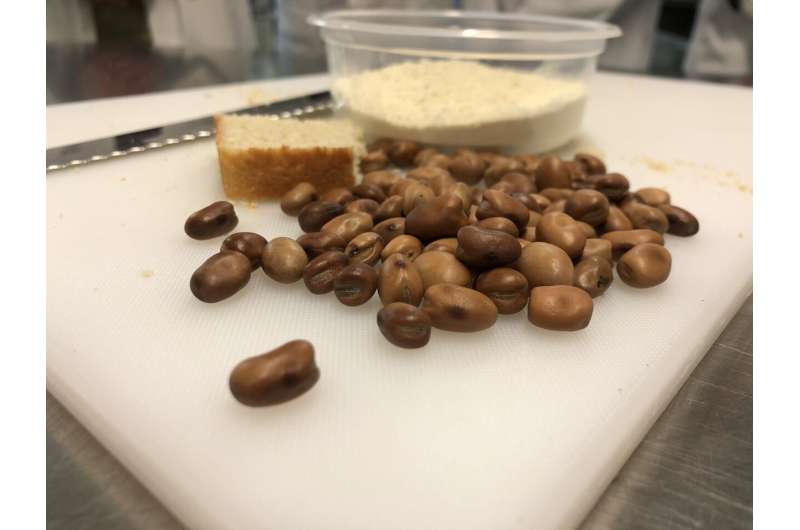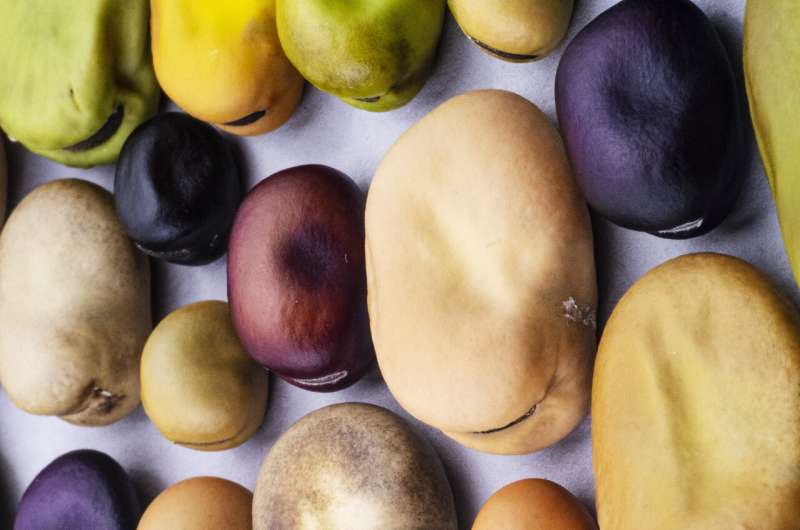This article has been reviewed according to Science X's editorial process and policies. Editors have highlighted the following attributes while ensuring the content's credibility:
fact-checked
peer-reviewed publication
trusted source
proofread
Genes in beans: Bean genome sequenced for improved nutrition

The faba bean genome, which at 13 billion bases is more than four times the size of the human genome, has been sequenced for the first time and is published in Nature. This is an extraordinary technical achievement and crucial to efforts to breed beans with optimum nutritional content and sustainability of production.
A consortium of scientists from Europe and Australia, led by the University of Reading (UK), Aarhus University (Denmark) and the University of Helsinki (Finland), worked together on this large scale sequencing project.
The project to fully decode the genome went on to test out its usefulness by searching for genes involved in seed size. The team also looked at the color of the hilum—the scar left when a bean detaches from the pod—to see if they could find the genes that determine this distinctive feature.
Professor Donal O'Sullivan led the University of Reading team. He said, "Having shown that we can quickly pinpoint genes controlling these visible seed traits, work is already underway to locate and identify precise genetic differences that control hidden seed characteristics that determine its nutritional value."
"We want to produce beans that are higher in essential amino acids as well as lower in antinutrients, such as phytate, which binds micronutrients and reduces absorption. Having the genome sequence will accelerate this process considerably."

At the University of Reading, the enhanced prospects for nutritional improvement feeds into a project to increase the amount of UK-grown pulses consumed, by incorporating faba bean flour into the ever-popular British white loaf.
Faba beans are naturally high in protein, fiber, and iron—all nutrients that many people in the UK need more of. They grow well in the UK but are mostly fed to animals to produce meat and milk. At a time when plant-based diets are an attractive prospect for those wishing to look after their planet and their own health, it would make sense to go directly to the protein source: The humble faba bean.
More information: Stig Uggerhøj Andersen, The giant diploid faba genome unlocks variation in a global protein crop, Nature (2023). DOI: 10.1038/s41586-023-05791-5. www.nature.com/articles/s41586-023-05791-5
Journal information: Nature
Provided by University of Reading





















